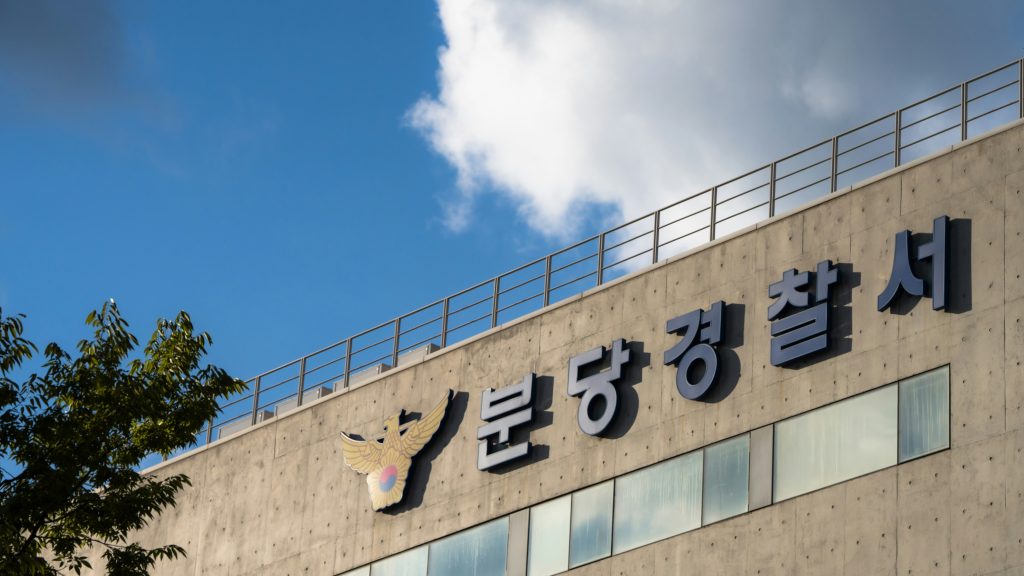Convictions in Tyre Nichols Case: A Complex Verdict Raises Questions
In a significant development following the tragic events surrounding the death of Tyre Nichols, a federal jury has reached a verdict regarding the actions of three former Memphis police officers involved in the fatal beating of the young man. After more than 20 months of legal proceedings and intense public scrutiny, the trial concluded with mixed results that have sparked a wave of reactions from the community and legal experts alike.
The jury found the former officers guilty of several charges, including witness tampering and civil rights violations. However, they were acquitted of the most severe counts that could have led to life imprisonment. This outcome has left many in the community feeling conflicted; while there is a sense of accountability for the actions of the officers, the lack of conviction on the most serious charges raises concerns about the effectiveness of the legal system in addressing police brutality.
Tyre Nichols was a 29-year-old man whose life was tragically cut short in January 2023. His death ignited widespread protests and discussions about police reform, systemic racism, and the need for greater accountability within law enforcement agencies. The video footage of the incident, which showed the brutal beating by the officers, shocked the nation and led to an outpouring of grief and anger across various communities.
The verdict has prompted community leaders and advocates to call for further reforms to ensure that such incidents do not happen again. Many express disappointment with the jury’s decision to acquit the officers of the most serious charges, viewing it as a setback in the fight for justice and accountability.
While the convictions on lesser charges indicate a step forward, the broader implications of this case remain to be seen. Activists are now urging legislators to take action to implement systemic changes within police departments, focusing on training, accountability, and transparency. The Nichols case has become a focal point in the ongoing national dialogue about policing practices and civil rights, drawing attention to the urgent need for reform.
As the community processes this verdict, many are reflecting on the legacy of Tyre Nichols and the broader implications of this case. His story has become emblematic of the struggles faced by countless individuals who have suffered from police violence. The hope is that, through continued advocacy and awareness, meaningful changes can be realized to prevent future tragedies.
The legal battles surrounding police misconduct are far from over, and as this case illustrates, the path to justice is complex and fraught with challenges. The community remains vigilant, advocating for a future where accountability is paramount, and the rights of all individuals are respected and upheld.
Tags: civil rights, Justice Reform, Memphis, police brutality, Tyre Nichols
The Exonerated Five Speak Out: A Call for Justice at the DNC
In a powerful moment at the Democratic National Convention in Chicago, four members of the Exonerated Five, formerly known as the Central Park Five, took to the stage to share their harrowing experiences and highlight the ongoing issues of injustice and systemic racism in America. Their appearance served as a poignant reminder of the injustices faced by these innocent young men, who were wrongfully convicted of a crime they did not commit over three decades ago.
The story of the Central Park Five is one that resonates deeply within the fabric of American society. In 1989, five Black and Latino teenagers were accused of the brutal attack and rape of a female jogger in Central Park, a crime they did not commit. Despite a lack of physical evidence linking them to the crime, the teenagers were coerced into confessions under intense police pressure. Their wrongful conviction sparked a national outcry and raised important questions about race, police practices, and the criminal justice system.
During their speech at the DNC, the Exonerated Five directly addressed former President Donald Trump’s past comments and actions regarding their case. They recalled how Trump took out full-page ads in New York City newspapers calling for the execution of the five boys, who were merely victims of a flawed judicial system. “45 wanted us un-alive,” they proclaimed, reflecting the deep scars left by racism and injustice.
The Exonerated Five’s message at the convention was clear: the fight for justice is far from over. Their story is not just about their personal struggles but symbolizes the broader plight of countless individuals who have been wrongfully accused and incarcerated. They urged the audience to recognize the ongoing issues of systemic racism and the urgent need for reforms in the criminal justice system.
Their appearance at the DNC was not only a moment of reflection but also a call to action for all Americans. The Exonerated Five encouraged everyone to continue advocating for justice and equality, reminding us that the fight for civil rights is a collective responsibility that requires vigilance and dedication.
As the nation grapples with the legacies of racism and injustice, the voices of the Exonerated Five serve as a powerful reminder of the importance of truth, accountability, and healing. Their story highlights the need for systemic changes to prevent such injustices from occurring in the future. The DNC provided a platform for these men to share their experiences and to inspire others to join the fight for social justice.
The Exonerated Five’s message echoes beyond the convention hall, resonating with activists, advocates, and citizens across the country. Their journey from victimhood to advocacy is a testament to resilience and the relentless pursuit of justice. As they continue to share their story, they hope to enlighten others on the importance of standing against injustice and fighting for a fairer society.
In conclusion, the Exonerated Five’s participation in the Democratic National Convention was not merely about reflecting on their past; it was about igniting a movement for change. Their story serves as a clarion call for all those who believe in justice and equality, urging us all to take a stand against injustice in whatever form it may present itself. The fight continues, and with voices like theirs leading the way, there is hope for a more just future.
Tags: Central Park 5, Exonerated Five, Justice Reform
The Exonerated Five Speak Out Against Trump’s Legacy at Democratic National Convention
In a powerful and emotional address at the Democratic National Convention in Chicago, the Exonerated Five, formerly known as the Central Park Five, shared their harrowing experiences and the enduring impact of their wrongful convictions. The group, which includes Dr. Yusef Salaam, Korey Wise, Raymond Santana, and Kevin Richardson, recounted the traumatic events that led to their unjust incarceration as teenagers for the assault and rape of a jogger in Central Park—a crime they did not commit.
Reflecting on their ordeal, the members highlighted the role of former President Donald Trump, who infamously took out full-page ads in several newspapers during the 1989 case, calling for the execution of these innocent young men. Al Sharpton, speaking on their behalf, emphasized the severity of Trump’s actions, stating, ‘He spent a small fortune on full-page ads calling for the execution of five innocent young teenagers.’
The Exonerated Five articulated their feelings of anger and betrayal, particularly regarding Trump’s continued refusal to acknowledge his role in perpetuating their suffering. They noted that while they were wrongfully accused and convicted, Trump has never apologized for his public vilification of them. ’45 wanted us un-alive,’ they proclaimed, a poignant statement that encapsulates the depth of their trauma and the ongoing struggle for justice.
Their presence at the convention served as a reminder of the systemic injustices faced by marginalized communities, especially Black men, within the American legal system. The members of the Exonerated Five have become advocates for criminal justice reform, using their platform to raise awareness about wrongful convictions and the need for accountability in law enforcement.
As they stood united on stage, their message was clear: the fight for justice does not end with their exoneration. It extends to all those who have been wronged by a flawed system. They called upon the Democratic Party and the American public to actively engage in efforts to reform the criminal justice system, ensuring that future generations do not suffer the same fate.
The emotional weight of their story resonated deeply with convention attendees, many of whom were moved to tears. The Exonerated Five’s journey from victims of a miscarriage of justice to powerful advocates for change exemplifies resilience and the human spirit’s capacity to overcome. Their message echoed beyond the walls of the convention center, reaching individuals across the nation, urging a collective awakening to the realities of racial injustice.
In conclusion, as the Exonerated Five continue to share their story, they remind us all that justice must be pursued relentlessly. Their voices serve as a powerful call to action for those in positions of power to recognize and rectify the injustices that persist in society. As they look toward the future, they remain committed to ensuring that their painful past translates into a brighter, more equitable future for all.
Tags: Central Park Five, Donald Trump, Exonerated Five, Justice Reform, Racial Injustice
Rev. Al Sharpton Addresses Democratic National Convention, Advocates for Justice and Equality
In a powerful speech during the final night of the Democratic National Convention in Chicago, Rev. Al Sharpton, founder and president of the National Action Network, took the opportunity to address critical issues of justice and equality, drawing on his extensive experience in civil rights activism. Sharpton’s impassioned remarks emphasized the importance of standing against injustice, particularly in light of historical events that have shaped the African American experience.
Sharpton’s address was particularly poignant as he shared the stage with members of the exonerated ‘Central Park Five,’ underscoring the long-lasting impact of wrongful convictions on individuals and their families. He highlighted the grave injustices faced by these young men, who were wrongfully accused and convicted of a crime they did not commit, and called for a renewed commitment to reforming the criminal justice system to prevent such miscarriages of justice in the future.
During his speech, Sharpton also took a strong stance against former President Donald Trump, criticizing his comments regarding ‘Black jobs’ and what he termed a lack of genuine support for the African American community. The civil rights leader urged attendees to recognize the difference between rhetoric and real action, emphasizing that true progress can only be achieved through consistent advocacy for policies that uplift marginalized communities.
Sharpton’s remarks resonated deeply with the audience, as he articulated the ongoing struggles faced by Black Americans and the need for unyielding solidarity in the fight for equality. His call to action was not only a plea for support for Democratic presidential nominee Vice President Kamala Harris but also a reminder of the collective responsibility to challenge systemic racism and inequality at every level of society.
The presence of the ‘Central Park Five’ at the convention served as a powerful reminder of the need for justice reform and the importance of acknowledging past wrongs. Sharpton’s partnership with these individuals highlights his commitment to amplifying the voices of those who have been silenced by a flawed judicial system.
As the Democratic National Convention concluded, Sharpton’s speech served as a rallying cry for activists, politicians, and citizens alike to unite in the pursuit of a fair and just society. His powerful narrative and unwavering dedication to civil rights continue to inspire many to engage in the fight for equity and justice, reinforcing the idea that the struggle is far from over. The convention provided a platform for these vital conversations, and Sharpton’s lead in this dialogue marks a significant moment for the Democratic Party as it seeks to address the needs and concerns of all Americans, particularly those in marginalized communities.
In conclusion, Rev. Al Sharpton’s address at the Democratic National Convention encapsulated the urgency of the moment and the ongoing fight for justice. His words serve as a reminder that everyone has a role to play in ensuring that history does not repeat itself, and that the pursuit of equality must remain at the forefront of the national conversation.
Tags: Al Sharpton, civil rights, Justice Reform




